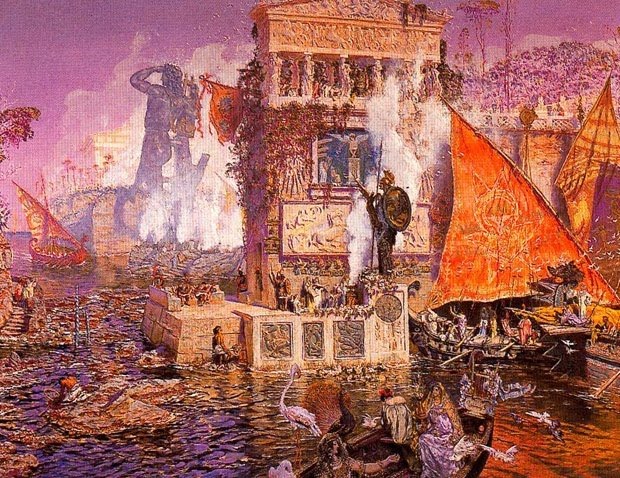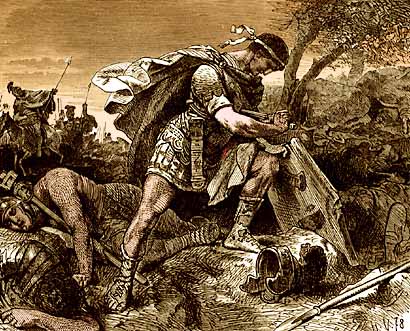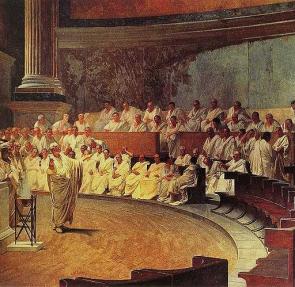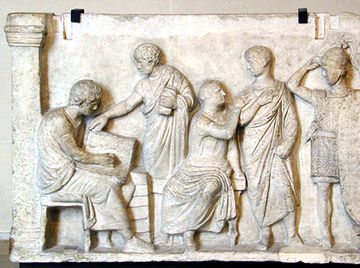So many updates, we're getting spoiled
This is awesome!
Glad you guys like
So many updates, we're getting spoiled
This is awesome!


It's kind of sad to see Antyllus meet such a crushing and humiliating end.
So ends the Antonine'sbid for the throne. All that's left is Vipsanian and Caesarion is home free, for the moment at least.....So we might still see an Emperor Tiberius, maybe he'll actually govern instead of delegating to the Praetorian Prefect.
Love the update. Brilliant!
So Antyllus dies with a whimper rather than a bang, and Tiberius is elevated to Caesarship, although I assume that Caesarion will still want a natural son to succeed him. I guess the question now is whether Caesarion will cut a deal with Vipsanian or fight to the finish.
Hmmm. Given this latest civil war so soon after the last one, are the Roman people starting to think of Caesarion's monarchy as a continuation of the late Republic's instability? Without the Augustan peace, I'm not sure how legitimate the idea of monarchy will be - given Caesarion's overwhelming force, the Romans will have to acquiesce in it for now, but if their hearts aren't in it, his chosen successor may have a lot of trouble. I think I mentioned at one point that this timeline may skip the Principate and head straight for the Dominate (with an intermediate kinda-sorta-monarchial-republican phase), and given that Caesarion's preferred means of securing civil peace and the legitimacy of the succession might be to enhance his family's standing as gods, I'm wondering about that again.



I love all the political manoeuvringsI've never read of the Praetor Maximus, what does that title mean?
A woman recruiting a private army....never heard of this in ancient times, but then what do i know
A woman recruiting a private army....never heard of this in ancient times, but then what do i know
I guess the first lesson here, for kids who want to build empires at home, is that It's Hard to Avoid Triumvirates. Livia brokers a Caesarion-Vipsanian-Drusus triumvirate, which Drusus rejects, only to set up a de facto Caesarion-Drusus-Tiberius triumvirate. And we all know how stable triumvirates are.
Which leads to the second lesson: The Big Guy Needs to Stay Home. In OTL, Augustus took and kept supreme power by staying in Rome and sending other people to fight for him, which meant that he was always able to squash any dissension in the capital. Caesarion, on the other hand, is off playing Alexander in Arabia, meaning that Drusus is running Rome, which could be hazardous to his health if Drusus starts developing Vipsanian-like ambitions.
Someone - maybe Livia, more likely Cleopatra - needs to tell Caesarion that it's time to grow up and start ruling his empire, and that doesn't just mean the eastern part.
For me is very unlikely who Drusus or Tiberius can become problems for Caesarion who is their step-father (and also father-in-law and adoptive father of Tiberius) and remember who Augustus OTL stay at home not because he need to govern the city but because he was not a good general and know it very well
Cleopatra herself during the civil war with her brother
I guess the first lesson here, for kids who want to build empires at home, is that It's Hard to Avoid Triumvirates. Livia brokers a Caesarion-Vipsanian-Drusus triumvirate, which Drusus rejects, only to set up a de facto Caesarion-Drusus-Tiberius triumvirate. And we all know how stable triumvirates are.
Which leads to the second lesson: The Big Guy Needs to Stay Home. In OTL, Augustus took and kept supreme power by staying in Rome and sending other people to fight for him, which meant that he was always able to squash any dissension in the capital. Caesarion, on the other hand, is off playing Alexander in Arabia, meaning that Drusus is running Rome, which could be hazardous to his health if Drusus starts developing Vipsanian-like ambitions.
Someone - maybe Livia, more likely Cleopatra - needs to tell Caesarion that it's time to grow up and start ruling his empire, and that doesn't just mean the eastern part.
For me is very unlikely who Drusus or Tiberius can become problems for Caesarion who is their step-father (and also father-in-law and adoptive father of Tiberius) and remember who Augustus OTL stay at home not because he need to govern the city but because he was not a good general and know it very well
I concur, Drusus and Tiberius would expect that all they really need to do is wait their turn and their step-father will see them right...their mother will see to it if need be.
Hero of Canton
Seconded It would be nice to see a family tree.Velasco is too much ask for a recap of weddings and children?